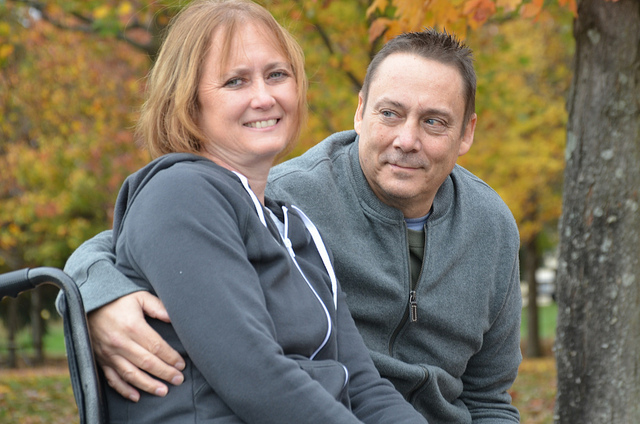Disability leads to divorce? the data is daunting
Author: Terry Duschinski
Published: Sep 9 2013
When couples vow to stay with each other "for better or for worse," little do they know that they might actually experience the "worse" if either one becomes disabled.

A work-related injury or a chronic illness can cause a spouse to experience health problems that will ultimately have an affect on the entire household.
If the disability becomes permanent, statistical data shows that couples will more than likely divorce.
Divorce hits Baby Boomers
Whether it's the U.S. Census or an institutional research report, studies show that divorce rates have increased in America over the past 20 years. What's surprising is data showing that the divorce rate has significantly increased for Baby Boomers, (those born between 1946 to 1964).
Researchers at Bowling Green State University discovered that the divorce rate for people 50 and over doubled between 1990 and 2010. Bowling Green's National Center for Family & Marriage found that 1 in 4 divorces in 2010 occurred to people who were over 50.
The disabled and divorce
People who are disabled are more than likely to go through a divorce than able-bodied people in the general population. A 2009 American Community Survey report showed that 13.6 percent of the 1.04 million disabled male population were divorced, and 12.4 percent of the 1.2 million disabled female population.
The reports and surveys containing interviews or anecdotal information had a common scenario: A spouse was diagnosed with a long-term illness or a degenerative disease, such as multiple sclerosis. The spouse eventually stopped working. Although the disabled spouse obtained some type of disability benefits, the couple's income level dropped. Because of burn-out over having to take care of the disabled spouse and seeing their quality of life eroding, the abled spouse initiated a divorce, even though "feeling guilty" about doing so.
In his report, Insult to Injury: Disability, Earnings and Divorce, author Perry Singleton, found that the connection between disability and divorce is greatest among young, educated men who experience a disability that prevents them from working.
An assistant professor of economics at Syracuse University, Singleton also mentioned that the "marital value" and "quality" of marriage declines as the disability becomes more severe. Because of this, couples with "lower quality marriages" are more likely to divorce than couples with "higher quality marriages."
The disabled and finances
Professor Singleton's study is consistent with other reports showing that household finances decrease when a spouse has a disability, which puts even more pressure on the marriage.
Finances also take a tumble after a divorce, especially if a disabled spouse received a less-than-fair settlement on his or her injuries or if the disabled spouse is expected to pay child support or alimony from his or her Social Security Disability Insurance (SSDI). If the spouse was able to work, the SSDI will be based on the spouse's work history. However, paying child support, alimony or making other court-ordered payments reduces the monthly income of the disabled spouse.
Marriage counselors advise couples to find ways to work through the stress that a disability places on a marriage. Couples are also advised to seek legal counsel for help in receiving their fair share of disability benefits. Beware of issues that can be complicated. A Charlotte, NC workers compensation attorney website tells the story of a man injured building an apartment in which he was to live, the living arrangement part of his compensation for performing carpentry on the property. It took legal action to have the man recognized as an employee entitled to total temporary disability.1
A couple wiling to face the challenge of a disability together might be able to overcome the “worse” in their marriage, thus preventing divorce.
In compiling this report Terry Duschinski found useful information through the website resources of Auger Law, an NC workers compensation attorney with offices in Charlotte, Raleigh, and Greensboro.
Photo: http://www.flickr.com/photos/amslerpix/8132253111/
1 http://www.northcarolinapersonalinjurylawyerblog.com/
***RESPONSIVE_AD***This article is published on the basis that the supplied content is the original work of the author / provider. If you feel that copyright has been infringed, please contact the site administrator.
B-0
